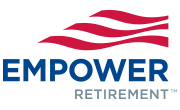Great-West Financial® CEO Robert L. Reynolds calls for bold action to create the next generation of America’s retirement savings system
CEO urges Congress to correct flawed budget measures that could undermine retirement savings in the U.S.
Investors’ interests will be best protected through enforcement of existing laws and regulations, according to Reynolds; further ‘red tape’ has potential for unintended, detrimental consequences
GREENWOOD VILLAGE, Colo., June 9, 2015 — Robert L. Reynolds, CEO of Great-West Financial and Putnam Investments, speaking at an important industry event today, called for the financial services industry and policy makers to revitalize America’s workplace savings system, take full account of savings’ benefits to the U.S. economy, and support a series of new policy moves to create a more robust, next-generation retirement model that is more inclusive — and effective — in its mission.
“Retirement savings and tax reform should be at the center of the 2016 presidential campaign,” he told an industry group in Washington, D.C. today. “We are at one of those rare inflection points where American history takes a turn — and getting retirement policy right can help shape a better future.”
In discussing a critically needed component to solidify the retirement system in the U.S., Reynolds called for the establishment of a new framework for how retirement savings is viewed and accounted for in the Congressional budgeting process — a key determinant in preserving the tax-advantaged savings opportunity for millions of Americans.
Reynolds emphasized the importance of Congress correcting flawed budget rules that vastly overstate the supposed “costs” of retirement savings deferrals. These methods, he argued, are “worse than flying blind” and must be changed “before we embark on serious tax or pension reforms.”
Additionally, Reynolds warned of the potentially damaging impact on costs and investors’ access to advice from a recently proposed rule from the Department of Labor. “What we need,” he said, “is strong enforcement of existing law — real accountability and consequences — not more red tape. That’s the ideal way to serve savers’ best interests — and drive bad actors out of retirement services.”
On the issue of broadly extending the availability of workplace savings, Reynolds cited the recent Government Accounting Office report that half of all households over age 55 have no retirement savings at all. He urged action to close the “access gap” that leaves millions of workers without employer-provided savings plans.
Further, for the many Americans who do have access to workplace savings, yet find themselves at risk of having an insufficient nest egg, Reynolds emphasized that there is a proven path to success that should be emulated. “If we apply well-established best practices across the broader workplace savings system, we can help position millions of working Americans for a more successful outcome in retirement,” he said, “Solving America’s retirement challenge is very much within our grasp.”
Reynolds outlined a series of policy changes needed to help working Americans achieve reliable lifetime income, including:
- Preserving and expanding existing savings incentives and correcting the false “scoring” and 10-year window used today to account for the cost of savings deferrals
- Closing the “access gap” and providing workplace savings to all — by supporting legislation to facilitate multiple employer plans, starter 401(k)s and auto-IRAs at the national level
- Providing larger — and refundable — tax credits to employers who establish plans — and to part-time, free-lance, and contract workers who establish IRAs
- Requiring the adoption of “full-auto” plan design as the norm — system-wide — while also strengthening legal safe harbors for plan sponsors
- Supporting greater adoption of lifetime income options — in plans and beyond — backed up by tax preferences for workers who choose guaranteed income
- Allowing tax-free withdrawals from qualified plans if the funds are used to cover health insurance or medical care
“If we take these actions,” Reynolds, concluded, “America will be seizing a great opportunity to make this country more prosperous, more dynamic and more just. We can turn what could be a crisis into a tremendous lever for renewed growth and national confidence — and offer the American worker a much-deserved, financially secure retirement.”
About Great-West Financial
Great-West Financial® is a registered mark of Great-West Life & Annuity Insurance Company. Headquartered in metro Denver, Great-West Financial administers $441 billion in assets for its nearly 7.7 million retirement, insurance and annuity customers.
Empower Retirement, Great-West Financial’s retirement arm, is the nation’s second-largest retirement plan record keeper by total participants (Pensions & Investments, March 2015). Great-West Financial is the No. 2 underwriter of life insurance sold through banks (BISRA Life Report, Fourth Quarter 2014, based on total premiums at Dec. 31, 2014). It is an indirect, wholly owned subsidiary of Great-West Lifeco Inc. and “A Member of the Power Financial Corporation Group of Companies”®.
Great-West Financial® refers to products and services provided by Great-West Life & Annuity Insurance Company (GWL&A), Corporate Headquarters: Greenwood Village, CO, its subsidiaries and affiliates. Data on insurance and recordkeeping reflects consolidated information from GWL&A and its subsidiaries. The trademarks, logos, and registered marks used are owned by GWL&A. “A Member of the Power Financial Corporation Group of Companies” is the registered mark of Power Corporation of Canada.
Media Contacts:
Jon Goldstein – Office: 617-760-1127; Cell: 516-946-5598; [email protected]
Laura McNamara – Office: 617-760-1108; Cell: 978-505-0524; [email protected]
Stephen Gawlik – Office: 303-737-0899; Cell: 617-417-4408; [email protected]



